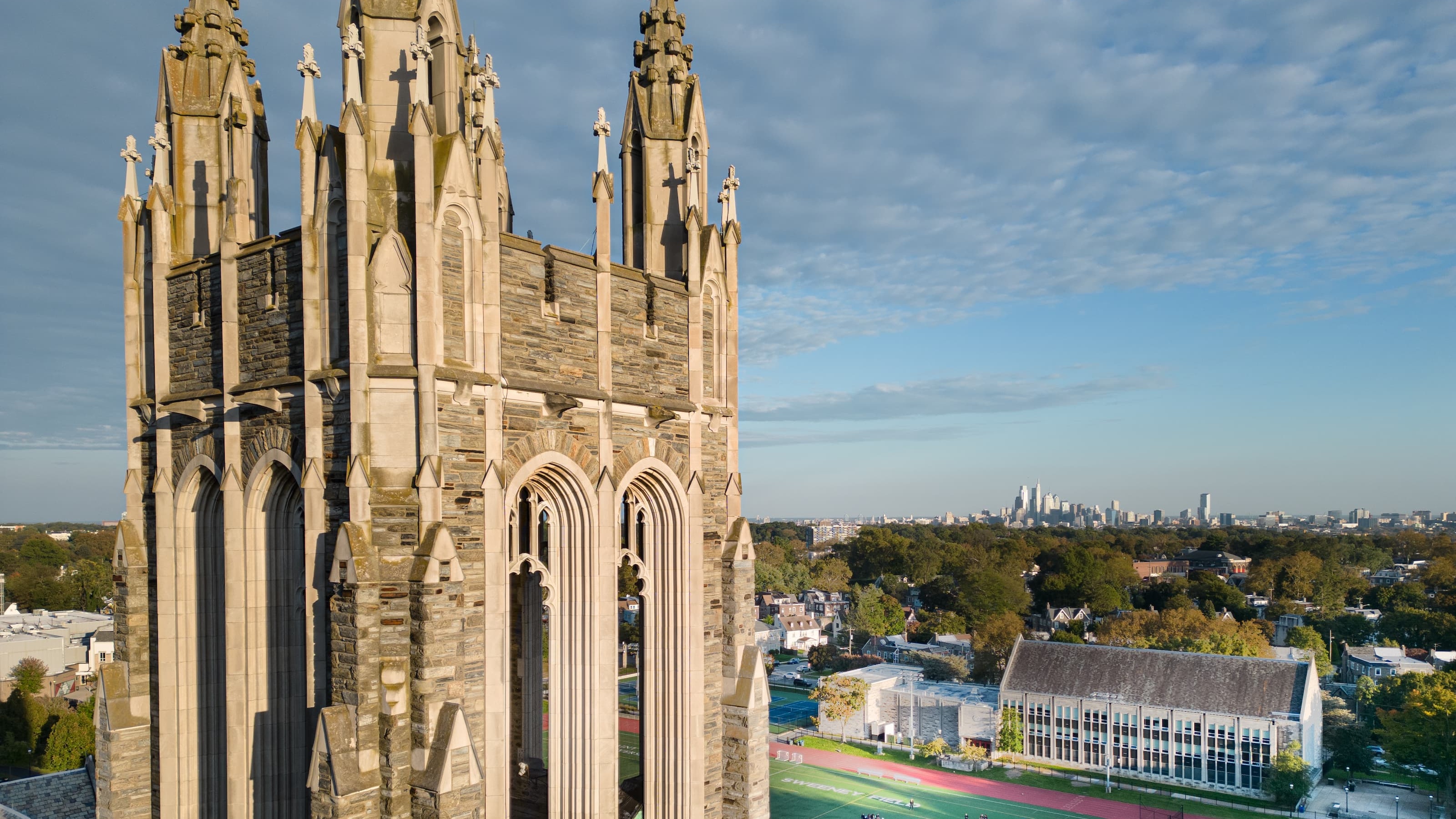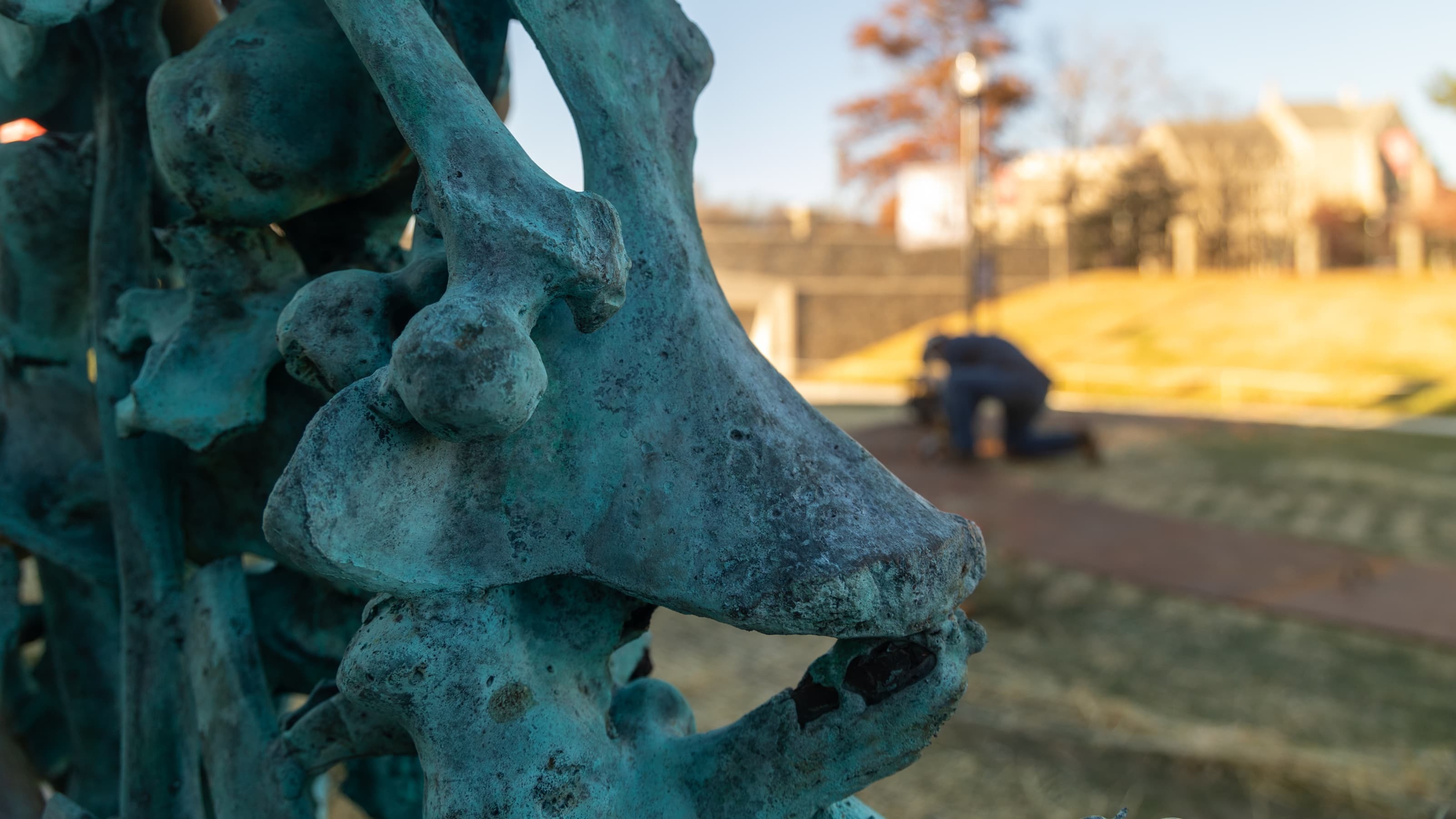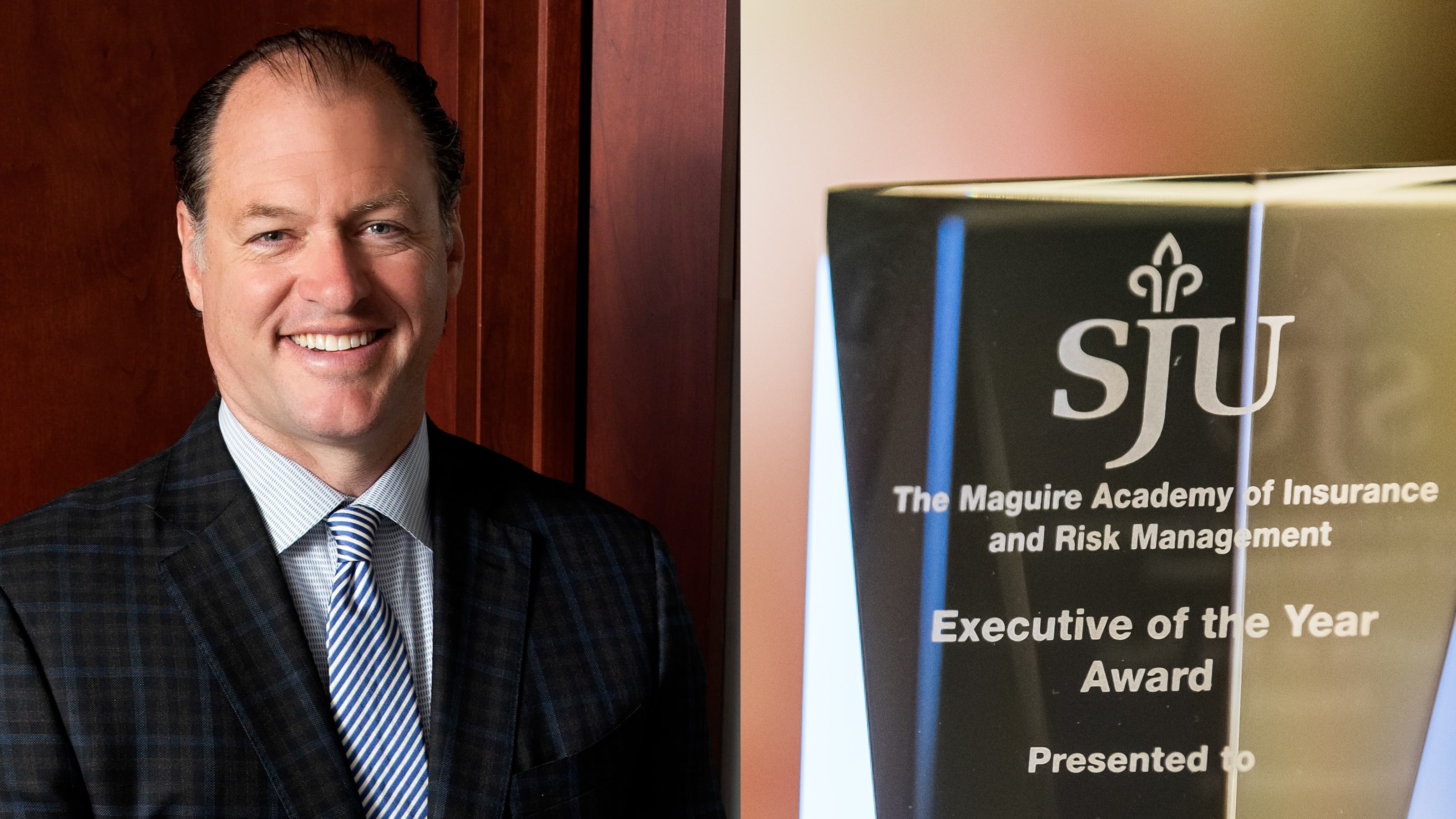University Forum Emphasizes Commitment to Shared Values
More than a dozen speakers shared impact statements, reflections and expectations that Saint Joseph's University be a place that exclusionary behavior will not be tolerated.

Hagan Arena filled with faculty, staff and students. More than a dozen speakers shared their experiences, reflections and expectations. The message that they communicated was singular: Saint Joseph’s will not be a place where racist and exclusionary behavior will be tolerated.
The University-hosted forum on diversity, equity, and inclusion, held on Nov. 4, was a response, in part, to four bias incidents that have occurred in the first three months of the academic year. University President Mark C. Reed, Ed.D., made clear the hurtful impact that such actions have on Hawks.
“These incidents serve to make members of our community feel unsafe or to feel unwelcome or to feel not included,” he said. “It is simply not acceptable in our University. It never has been, but I can assure you it is not today and it will not be acceptable ever in the future.”
The forum, designed through a collaboration between faculty, administrative and student leaders, served to explain the University’s definition of bias incidents, outline the adjudication and communication process that happens in the aftermath of an incident, and specify initiatives that are underway around campus to encourage equity and inclusion. Most importantly, the forum provided an opportunity for Hawks from underrepresented groups to share impact statements, and for all present to listen.
Zoë Welsh ’22, a sociology major and president of Bridging the Gap, a student group that promotes awareness of diversity of lifestyles and backgrounds on campus, said during the forum that the events that happened on campus were part of a societal struggle.
“The habitual events of bias and hate … aren’t isolated or uncommon among universities across the country,” she said. “These biases and pervasive acts of racism are an issue that stems from a cultural intolerance that reflects our nation’s climate.”
Welsh, who also serves as one of the chairs of inclusion and diversity within University Student Senate, called on those who come from a position of power to stand up for others.
“I will not be discouraged and I shall persist, because I too, am SJU,” she said. “I challenge everyone here to be mindful of the privileges they hold and use them to advocate for those who may not have that same access. Reflect seriously and carefully on this moment and let it be your call to action.”
Autumn Richardson ’22, a psychology major and treasurer of the African Caribbean Student Association, said that similar meetings that have taken place on campus in the past were a sign of progress, but insisted there was still work to be done. She challenged the University to seek more Black and Latinx representation in hiring and to redouble its efforts to recruit a diverse student body.
“SJU, I need you to rise to the occasion,” she said.
“I will not be discouraged and I shall persist, because I too, am SJU."
Zoë Welsh ’22
Asia Whittenberger ’22, a sociology major, cultural ambassador of the Asian Student Association and member of the inclusion and equity council of University Student Senate, called on those who might feel uncomfortable hearing about the exclusionary experiences that certain students felt to learn from their uneasiness.
“If a marginalized person is speaking to their experience and you feel uncomfortable, sit with it and let that discomfort be productive,” she said. “Enter into conversations open minded and reflective about how the intersection of your identity impacts your outlook and perspective. Listen to what people who are different from you have to say as it is a crucial step to empathizing. In order to truly care for the whole person, we must see the various identities that make each and every one of us as parts of the bigger whole.”
Stephanie A. Tryce, J.D., assistant professor of sports marketing, shared her long history with the University: her family is from West Philadelphia, her husband is a graduate of the Class of 1986 and her daughter a graduate of the Class of 2019. Tryce insisted that racist and exclusionary acts were in opposition to the University’s Ignatian principles, and challenged all levels of the community to respond.
“We need to attack this on all fronts,” she said. “Students: what if you held each other accountable for the community we’re supposed to be? Faculty: what if you made inclusion and diversity part of your class, not just as a one-off lecture, but threaded throughout your teaching? What if our community had standards with real consequences that people feared? What change would happen then, I wonder? I ask you to wonder with me.”
Adam Mullin ’20, president of the University Student Senate, echoed Tryce’s sentiments. He noted that people can be judged for their inaction as much as action, and invited those who didn’t or couldn’t attend the forum to join those who did in standing up against inequity.
“Even if you didn’t [attend today], the presence of your peers and people who work at this institution who were here tells you something about the community we stand for and that you’re either with us or you’re against us,” Mullin said.
Zenobia Hargust, chief human resources officer; Wadell Ridley, interim chief inclusion and diversity officer; and Mary Elaine Perry, Ed.D., Title IX and Bias coordinator, shared information at the forum about the bias incident reporting process and the outlets individuals on campus have to report incidents, both anonymously and non-anonymously.
“Part of counteracting [exclusionary behavior] is making sure there’s some form of accountability when these types of things happen in our community,” Hargust said. “There are many avenues available to you if you have the unfortunate experience of a bias incident happening to you.”
"Now is the time for us to put up or shut up, as the saying goes. And I have every confidence that the people here will put up."
Mark C. Reed, Ed.D., President
Among the tools, according to the three leaders, are blue light phones around campus and the SJU Safe app, both of which connect users directly to Public Safety. The Office of Inclusion and Diversity also offers an online form to report bias activity, and details the process of bias reporting.
Ridley identified progress that the University has made in its goals for becoming a more equitable and inclusive campus, including the development of training for professional and student staff, increasing diversity of Residence Assistants, and the creation of a six-week faculty seminar on intersectional pedagogy and creating an inclusive classroom. He urged those who wanted more information to look to the online diversity and inclusion progress report .
In closing the forum, Reed shared that, both earlier in his career in student life and during his time as president, he has sat with many students who were on either side of a community standards issue, and that the most difficult conversations he has had were with students who had been targeted by exclusionary behavior.
"[The acts] that are impossible to reconcile are those that have a direct impact on someone else," he said. "And we heard about that today from our students and our speakers. We need to face that as a community."



